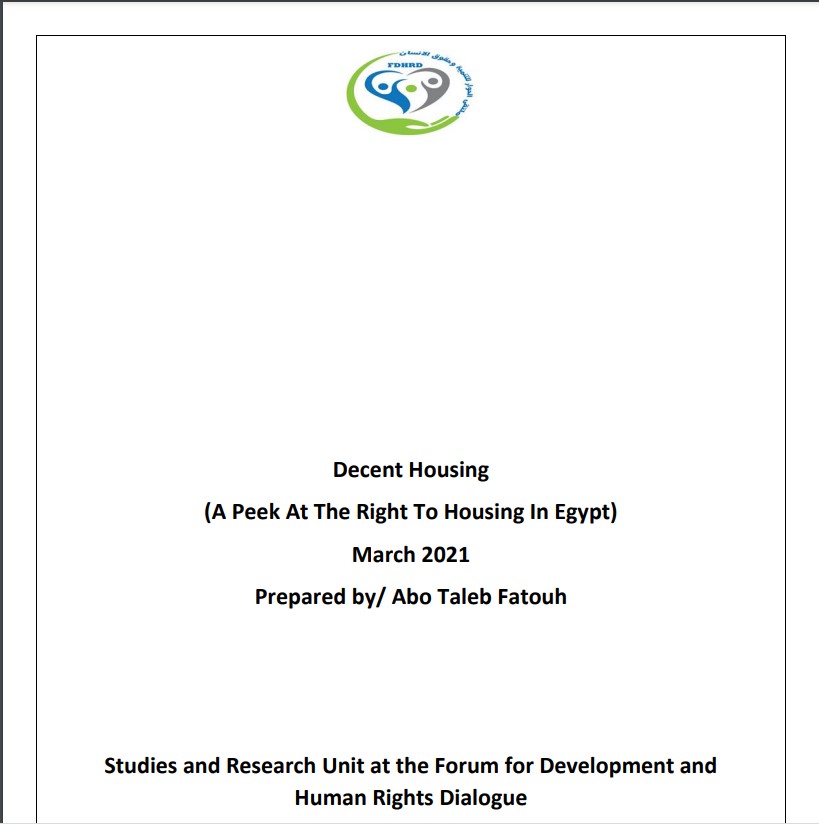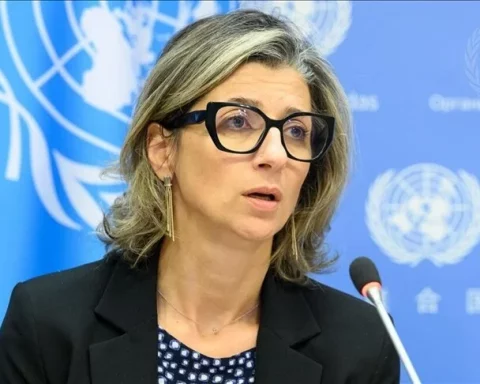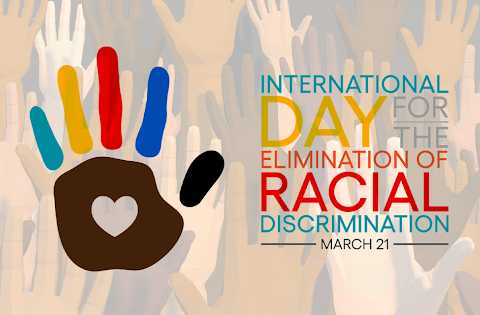The “ Research and Study Unit” of the Forum for Development and Human Rights Dialogue foundation issued a report titled “Decent Housing, A Peek at the Right to Housing in Egypt.”
The report drew attention to the fact that the phenomenon of slums is one of the most serious issues due to its significant social, economic and political implications for society, and its development has become a necessary requirement and this phenomenon is a national security issue and the means of confrontations is a national responsibility that requires the coordination of collective efforts organized and integrated between ministries, government and non-governmental institutions, the private sector and citizens in general.
The report stressed that during the recent work of the state to develop informal areas and improve the social level of the citizen through the plan of development of informal areas, whether by replacement or development
According to the report, a range of factors have helped to grow and spread random housing, the most important of which are unregulated and unplanned rural-urban migration, massive population growth, urban sprawl on agricultural land, as well as problems related to the ineffectiveness of applicable laws, including inadequate legislation and laws governing land division, the lack of a law enforcement control mechanism to centralize government services and interests in major cities and the emergence of many modern industries, the unwillingness of cities to receive all these numbers coming from the countryside and Rising prices of land and apartments
The report noted that international human rights law recognizes the right of every individual to an appropriate standard of living, including adequate housing, and the right to adequate housing was an element of the right to an appropriate standard of living in the Universal Declaration of Human Rights of 1948 and in the International Covenant on Economic, Social and Cultural Rights of 1966.
The Egyptian Constitution also includes, providing a safe life as a right for every human being, the right to adequate housing, security and health, and the need to develop a comprehensive national plan to address the problem of slums and improve the quality of life and public health in accordance with article 78 of it.
With regard to the state’s policy to address the development of slums, the report explained that it has drawn up three plans for the development of slums: a short-term plan from 2016 to 2018 to deal with 351 unsafe areas to be developed and upgraded and improve the lives of its 8 inhabitants. 50,000 people and a medium-term plan 2016 to 2021 to develop planned spare areas, including facility development, random market development and a long-term plan from 2016 to 2026 aimed at reducing the emergence of slums and ensuring continuous development in the areas that have been developed.
With regard to the challenges, obstacles and problems for the development of informal areas, the report mentioned several factors, including: funding, which is the biggest challenge facing slums, the problem of land scarcity within some cities, preventing informal construction and preserving the achievements of new cities.
As part of the strategies and policies of the Slum Development Fund
The report stated that the fund’s role is to confine, and develop informal areas, develop the plan urbanly and provide them with the basic facilities necessary for planning them of water, sanitation and electricity, and the Fund begins its competence in coordination with ministries, stakeholders and local administration units and to provide them with the necessary information, expertise and assistance.
With regard to random development projects
According to the report, the types of informal areas in Egypt vary between unsafe housing, informal housing and unplanned housing, and the state is drawing up different plans to develop each area separately, and the Area of Menshya Nasser in Cairo is one of the most famous informal areas, which includes all kinds of slums.
According to the report regarding projects for the development of unsafe areas, the first phase of the development of slums began to deal with 351 unsafe areas nationwide, which have been classified as life-threatening and dangerous, such as the presence of housing in a torrent exit, under rocks, near high pressure towers or on railway lines.
With regard to unplanned area projects, the report said that the Egyptian government, represented by the Slum Development Fund, began work this year 2020 to develop and upgrade facilities in unplanned informal areas, which make up about 40% of egypt’s urban area.
The first informal areas developed were the Nahda al-Mahrousa project, the Al-Asmarat neighborhood, and the development of Maspero and Beshear al-Khair area in Alexandria.
With regard to market development projects and informal attitudes, the report stated:
The government has drawn a national map nationwide with international standards suitable for the right conditions, and the Fund has recently established regular markets instead of randomness and transported vendors who are accounted for, pointing out the readiness of new markets with all means of protection such as the availability of fire alarm and surveillance by cameras.
The report concluded with a number of recommendations, the most important of which were:
1.Inventory of informal areas throughout the Arab Republic of Egypt.
2.Classification of informal areas through technical committees.
3.Developing public policies for the development and development of unsafe areas.
4.Supervising the development of urban plans for unsafe areas.
5.Develop a plan to develop informal areas in accordance with urban plans while removing unsafe areas.
6.Two areas, Manshiyeh Nasser and part of the Khairallah estate, have already been removed as part of the Slum Development Fund.
7.The need for a comprehensive time plan for the development of all informal areas linked to the plan of economic and urban development as what came at the center of social justice in the strategy of sustainable development of Egypt 2030, is limited to solving the problem of unsafe areas and did not develop a clear plan for the development of all informal areas as it is important to have a clear vision of the future to face the continuous random expansion and the comprehensive treatment of the solution of the problem.
8.Working to form a popular committee for each random area whose members are selected by election and these committees are responsible for discussing the problems of the region and urging citizens to engage in self-efforts to solve it, and to cooperate with community development associations in the development of humane baskets for residents of these areas.
You can view the report on the Forum for Development and Human Rights Dialogue website at: https://www.fdhrd.org/residences-decent-peek-on-right-in-the-rail/







